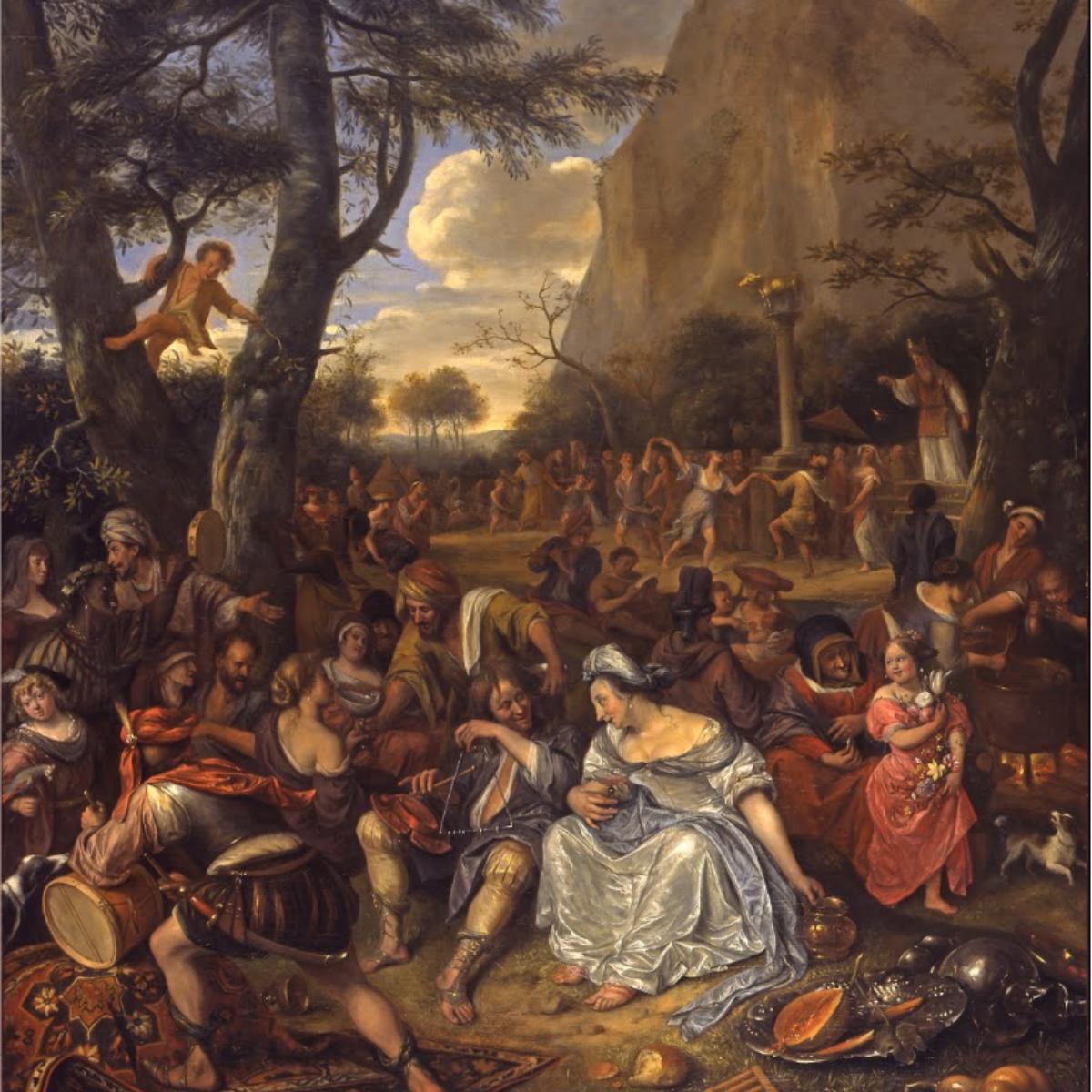
Parashat Ki Tisa
♦
Parashat Ki Tisa
John Paul A. Bolano
20 February 2019
This week’s liturgical readings speak clearly with one voice about the human struggle of flesh versus spirit. How many times have we all thought, “My spirit is willing, but my body is weak?” or conversely, “My body is willing, but my spirit is weak?” This constant wrestling between being driven by our flesh, or controlled by our spirit, finds expression in each of this week’s four readings.
Hear first Jesus’ challenging words, spoken to the gathered crowds and eager disciples. “Love your enemies, do good to those who hate you, bless those who curse you, pray for those who mistreat you…If you love those who love you, what credit is that to you? Even sinners love those who love them” (Lk 6:27-28, 32). What difficult words Jesus spoke! Who could ever follow them? Many in the crowds likely had real enemies from whom they experienced persecution and ridicule. I imagine some in the crowd may have even recalled the harrowing stories of the famous (King) David being threatened, pursued and hunted down by a fanatically jealous King Saul. Surely David had demonstrated loving his enemies and doing good to those who mistreated him!
It is precisely that story which we read about in this week’s Old Testament reading. David arrived in King Saul’s camp, only to find everyone sound asleep, and King Saul’s spear enticingly stuck in the ground near his head. David’s companion Abishai excitedly declared, “Today God has delivered your enemy into your hands. Now let me pin him to the ground with one thrust of the spear; I won’t strike him twice.” One could hardly blame Abishai considering everything David had experienced. Yet David refused. He chose instead to love his enemy, and to do good to those who hated him. While it would have been understandable, and perhaps even expected for David to have acted upon his fleshly desires, he did not; he was spirit-controlled.
That distinction between fleshly-driven or spirit-controlled is highlighted by Paul in his letter to the Corinthians. Distinguishing first between Adam and Jesus, and then extrapolating to greater humankind, Paul challenges the Church. We can choose to act following our flesh – as the first Adam – or following our spirit – as the second Adam. While we may naturally be dust-of-the-earth-men, in Christ we can become of-the-heaven-men. Our fleshly desires can be curtailed and controlled by the Spirit. Our urges or natural inclination can be subsumed by our spirit.
Finally, this week’s Psalm talks about redemption from our sinful, flesh-controlled life to a spirit-filled, renewed life. Our sins and diseases – evidence of flesh – are forgiven and healed. We are crowned with love and compassion – evidence of spirit (Ps 103:3-4). It is that love which empowers us to fulfill Jesus’ words to love our enemies!
For Reflection and Discussion: [1] How does King David demonstrate and fulfill Jesus’ teaching about loving one’s enemies? Who else from the Old Testament might model that teaching? [2] How do you wrestle between being driven by your flesh or controlled by your spirit? What contributes to being more spirit-controlled? What challenges it? How does Psalm 103 contribute to your understanding of flesh vs spirit? [3] How do we maintain a healthy tension between body and spirit that doesn’t set one against another as the Ancient Greeks did, but also recognizes our natural “flesh” inclinations do not necessarily line up with Jesus’ teaching?

The Worship of the Golden Calf Jan Steencirca – 1672 – 1675
Source: Google Arts & Culture

This week’s teaching commentary was prepared by
John Paul A. Bolano,
PhD student, Ateneo de Manila University, Bat Kol 2017
PLEASE NOTE: The weekly Parashah commentaries represent the research and creative thought of their authors, and are meant to stimulate deeper thinking about the meaning of the Scriptures. While they draw upon the study methods and sources employed by the ISPS-Ratisbonne, the views and conclusions expressed in these commentaries are solely those of their authors, and do not necessarily represent the views of ISPS-Ratisbonne. The commentaries, along with all materials published on the ISPS-Ratisbonne website, are copyrighted by the writers, and are made available for personal and group study, and local church purposes. Permission needed for other purposes. Questions, comments and feedback are always welcome.
Share this with your friends
Institute Saint Pierre de Sion – Ratisbonne – Christian Center for Jewish Studies
Congregation of the Religious of Our Lady of Sion
Contact us:
secretary@ratisbonne.org.il
26 Shmuel Ha-Naguid Street – Jerusalem
Subscribe to Newsletter

No responses yet